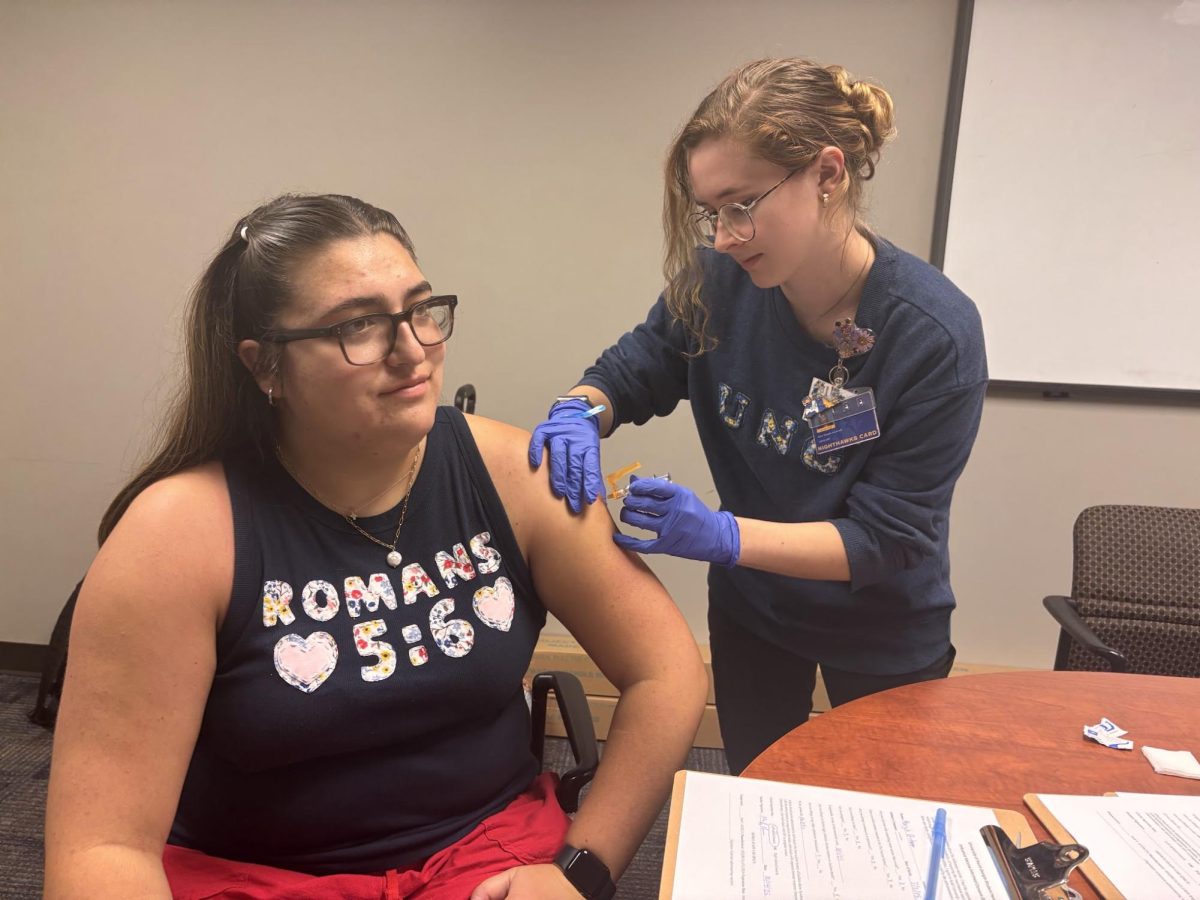Anxiety and depression are pains all too familiar to many college students. Often, without disclosing it to their peers, students push through the symptoms of these disorders all alone, hoping one day it will all get better.
For young adults, the symptoms of depression and anxiety can be crippling when paired with the typical stress that they feel from the jobs, exams and relationships that they have to juggle.
Symptoms of depression include general sadness, fatigue, insomnia and various other ailments. Anxiety often shows many of the same symptoms as depression. Those with anxiety will feel very restless, struggle to concentrate, and have increased feelings of fear towards everyday activities, per the Mayo Clinic.
Isabelle Vincent, who graduated from the University of Central Florida with a psychology degree in 2021, says that these symptoms can seriously affect a person’s life if they do not do anything about them.
Vincent says, “A student who suffers from anxiety or depression is going to struggle in school no matter what amount of work they put in. There are easy ways to help yourself if you do not want to seek treatment. Going outside and either exercising or just enjoying the fresh air can help switch up the environment around you and put your mind at ease.”
According to a survey conducted by the Association for University and College Counseling Center Directors, 41.6% of college students suffer from depression, and an additional 34.6% deal with anxiety. This study only represents students willing to volunteer their mental health situations to their university counselors or counseling directors.
People often hide their struggles with mental health, often due to the stigmatization of mental illnesses. Stigmatization does not only come from other people, as it often comes from the person struggling with mental health issues themselves. Mayo Clinic reports that many people who suffer from mental illnesses such as depression “May mistakenly believe that [their] condition is a sign of personal weakness or that [they] should be able to control it without help”.
This mindset can be dangerous to college students who may feel like their struggles are simply a bump in the road that can be overcome.
Haiden Ward, a senior marketing major at D’Youville College in Buffalo, New York, struggles with anxiety and resorted to drinking to ease the pain before he went and got help. Ward says, “I used to get super anxious for whatever reason before anything. After a stressful day, I thought that it would help me if I went out with friends and partied or drank, but it just made it worse. I’m glad I got help because I don’t know what would have happened if I didn’t.”

Stigmatization is also prevalent when it comes to depression in men. Statistically, men are more likely to commit suicide due to depression than women. One of the reasons is that traditionally, men are less likely to report symptoms of depression than women are.
Faxon Childress, a sophomore parks, recreation, and tourism major at Clemson University, says that he has dealt with these problems himself and feels that male depression statistics are likely higher than reported.
Childress says, “I think men still feel the need to be ‘strong’ and avoid talking about their feelings even if they are struggling. I have dealt with feelings of depression myself, and even though the world is much more accepting of discussing [mental health] today, I still hesitated to tell anyone because of the vibe it gives off socially.”
Some students simply do not want others to see what they are going through. Whether or not they feel that depression is a sign of weakness or just a private matter, students just do not always want to talk about the problems that they face.
Parker Gowland, a sophomore business major at the University of North Georgia, has gone through bouts of sadness himself. He says, “There are days where I don’t even want to get out of bed because I don’t want the people that I work around to see what I’m going through.”
Students who suffer from depression do not always have suitable options for treatment and counseling on their college campuses. Per the American Psychological Association, 19% of counseling directors for universities believe that their institution lacks mental health care or psychiatric services.

Vincent says that counseling or psychiatric help is critical to those who suffer from mental health issues. She says, “I have only been working under a psychologist for a short time, but I see a lot of the same things in people who come in looking for help. It can be as simple as going and asking someone to talk to you about your issues, which can make a huge difference in your life. There are plenty of people out there willing to help you no matter what you are going through.”
There are a few outlets for students to explore at the University of North Georgia if they are struggling with their mental health.
Each UNG campus has a campus-specific student counseling phone number, which students can call during the day if they need to schedule an appointment with a counselor. There is also a 24/7 support line, Nigel Cares, which students can call if they are struggling and need someone to talk to immediately.
The National Suicide Hotline is available at all times of the day at 800-273-8255.

































